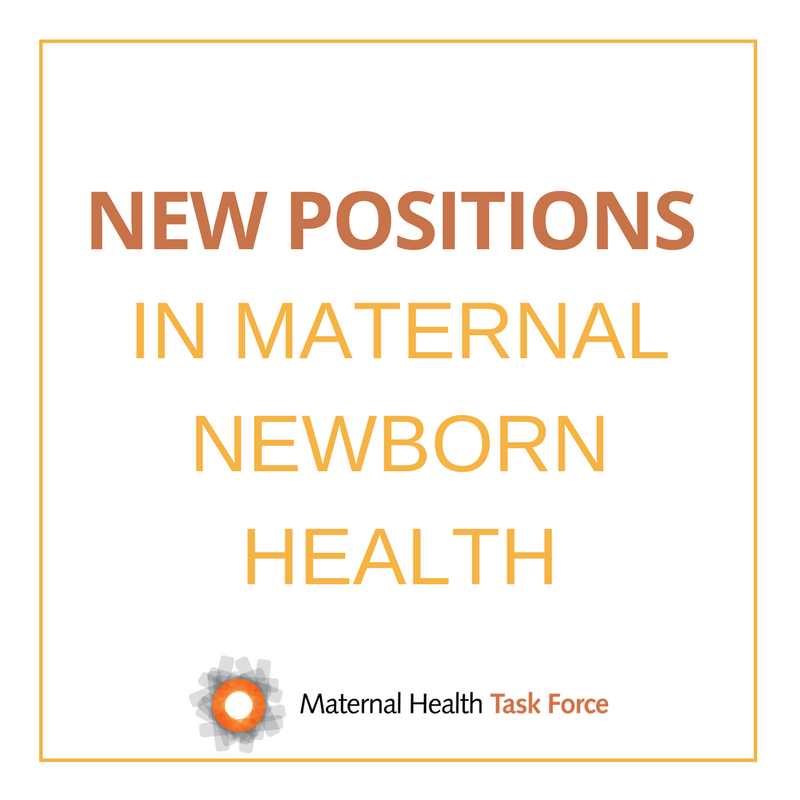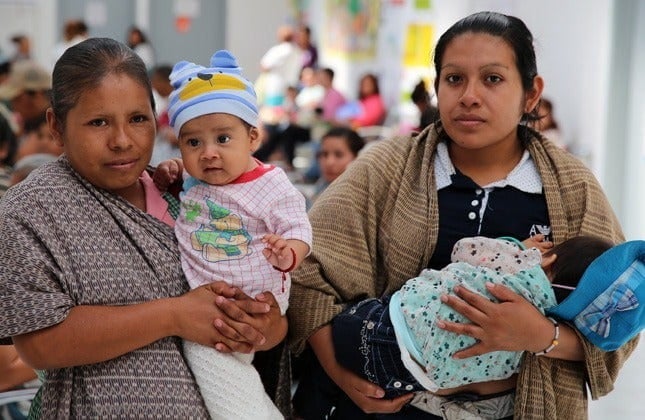Maternal Health Task Force
The Maternal Health Task Force strives to create a strong, well-informed and collaborative community of individuals focused on ending preventable maternal mortality and morbidity worldwide.
677 Huntington Avenue
Boston, MA 02115
Blog
-
Person-Centered Group Antenatal Care in Eastern Uganda: Reaching Women Through Pregnancy Clubs
Group antenatal care, initially developed in the U.S. several decades ago, is a promising model that responds to women’s health and information concerns during pregnancy. Management Sciences for Health is testing the feasibility and acceptability of person-centered, group antenatal care in the context of eastern Uganda…read more
-
“Dropping Out” Before Delivery: When Skilled Care Is not High Quality Care
Women who receive skilled care during pregnancy often “drop out” during a critical period of the continuum of care and end up delivering at home or in the community without a certified, properly trained health professional. Based on nationally representative data from 28 African countries, researchers explored the relationship between women’s antenatal care experiences and their likelihood of delivering with a skilled birth attendant…read more
-
More Women in Nigeria Are Using Maternal Health Services – But Gaps Persist
Nigeria has the fourth highest maternal mortality ratio in the world, and data have indicated low coverage of essential maternal health services with limited progress over time. A recent paper explored maternal health care utilization among women in Lagos State, western Nigeria…read more
-
Wilson Center Event | Maternal and Women’s Health, Two Years In: Measuring Progress Towards Meeting the SDGs
We are excited to announce the upcoming dialogue, “Maternal and Women’s Health, Two Years In: Measuring Progress Towards Meeting the SDGs.” The event will take place at the Wilson Center in Washington, D.C. (and online!) on Friday, 14 July 2017 from 2:00pm – 4:00pm EDT. This dialogue is part of the Maternal Health Task Force’s Advancing Dialogue on Maternal Health Series, in partnership with UNFPA and the Wilson Center…read more
-
22 New Positions in Maternal Newborn Health
Interested in a position in reproductive, maternal, newborn, child or adolescent health? Every month, the Maternal Health Task Force rounds up job and internship postings from around the globe. This month, we are featuring jobs at Population Services International, CARE, Jhpiego and other organizations…read more

-
Webinar: Integrating Respectful Maternity Care Into Quality Improvement Initiatives
Please join the Maternal Health Task Force and Ariadne Labs for an upcoming webinar, “Integrating Respectful Maternity Care Into Quality Improvement Initiatives,” on Monday 17 July 2017 from 10:00AM-11:00AM Eastern Daylight Time. Presenters will include Rima Jolivet, Rose Molina, David Sando, Katherine Semrau and Saraswathi Vedam…read more
-
Meeting the Maternal and Newborn Needs of Displaced Persons in Urban Settings
More than 60% of the world’s refugees and 80% of internally displaced persons now live in urban areas. However, a dearth of skilled birth attendants, such as doctors and midwives, in poor urban areas often leaves women and newborns at risk. On 31 May, a panel of experts gathered at the Wilson Center to discuss ways to improve maternal and newborn health care for displaced persons in urban areas…read more

-
Karamoja’s Mothers and Children Reap the Benefits of Health Systems Investments
Six years ago, only 27% of women in Karamoja delivered in health facilities and the regional maternal mortality rate was 750 per 100,000 live births—among the highest in the world. Last year, 73% of Karamoja’s mothers delivered in health facilities, and medical officers say the maternal mortality rate has sharply declined as a result. So what happened?…read more
-
New FIGO Guidelines for Misoprostol Use
The International Federation of Obstetrics and Gynecology recently released an updated chart outlining recommendations for dosages and routes of administration for misoprostol use for several indications including medically induced abortion, clinical management of miscarriage, cervical preparation for surgical abortion, fetal death, induction of labor and management of postpartum hemorrhage…read more
-
Strength in Numbers: Is Group Antenatal Care the Way Forward?
Traditionally, antenatal care (ANC) visits have consisted of one-on-one meetings between a pregnant woman and her provider. More recently, clinicians have been experimenting with group ANC, gathering several women at similar gestational ages to create a more interactive, supportive environment. While there have been advocacy efforts to raise public awareness about group ANC, the question of whether group models are more beneficial than traditional one-on-one models remains unanswered…read more